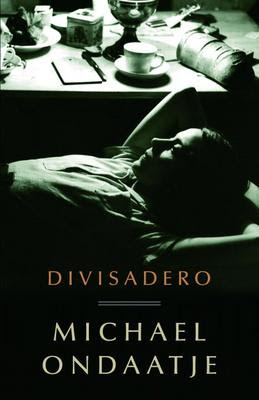
Well, I have been sooo busy lately with school, work and family that I am going back to my roots a little readers advisory, again, and submitting a book review on a recent book I've read (and by recent I mean like two months ago). I don't think reviewing knitting books from the 80's and 90's would be very beneficial...
DIVISADERO
- Michael Ondaatje
“He pushed the glass doors open and walked into the night so the coldness filled his shirt. He noticed the square of a window on the slope of the hill. There was a tightrope between the two farms, and below it an abyss.” (221)
Anyone who knows me knows that The English Patient is not only my favorite movie, but also my favorite book. Ondaatje uses his skill as a poet to write beautiful lyrical prose that simply carries the reader away to the mysterious worlds of Herodotus, Caravaggio and turn of the century France.
Yet, Divisadero is not without its problems. The beginning of the text, which is unusually set in the 1970’s is clunky and without much direction. The plot is slow if not non-existent. Ondaatje focuses on Claire, Coop and Anna who are raised like family since childhood. Anna and Coop have an innocent liaison and then a tragic separation takes place thanks to her father. Then, the story jumps several years down the road to Coop’s self-destructive behavior. The problem is, it isn’t until this section of the novel that the reader really gets hooked onto the characters. Up until then, the reader feels passive, like they are on the outside, looking in. A reader doesn’t want to be on the outside, they want to be there, transformed to where the action is happening.
The final part of the novel transports the reader to turn of the century France, following the life of a recluse writer whose life subtly parallels that of Anna. This was the best and most interesting part of the whole story. Ondaatje’s writing remains beautiful and excels in this section. It is his fluid verse that gives life to the story. Ondaatje also has that gift for weaving history into the mundane and making the whole world seem like one big canvas. Unfortunately, when the writer’s section ends, so does the novel. Anna says a few last words as she reflects on her time spent researching in France, but aside from that there is no conclusion. Part of Ondaatje’s style is that he doesn’t visualize things linearly. The plot starts in the middle, moves backwards and then ends in the present. Ondaatje loves to just end books without a solid finale. This vague conclusion leaves the reader hanging in a most disturbing way. Sometimes the unknown is good, but this is too much.
Overall, the characters all have the beginning of what makes well-developed characters. Unfortunately, the segmented style that guides the text keeps the reader from gaining an attachment to the text. While this method works in The English Patient because the characters come full-circle, it doesn’t work for this novel.



